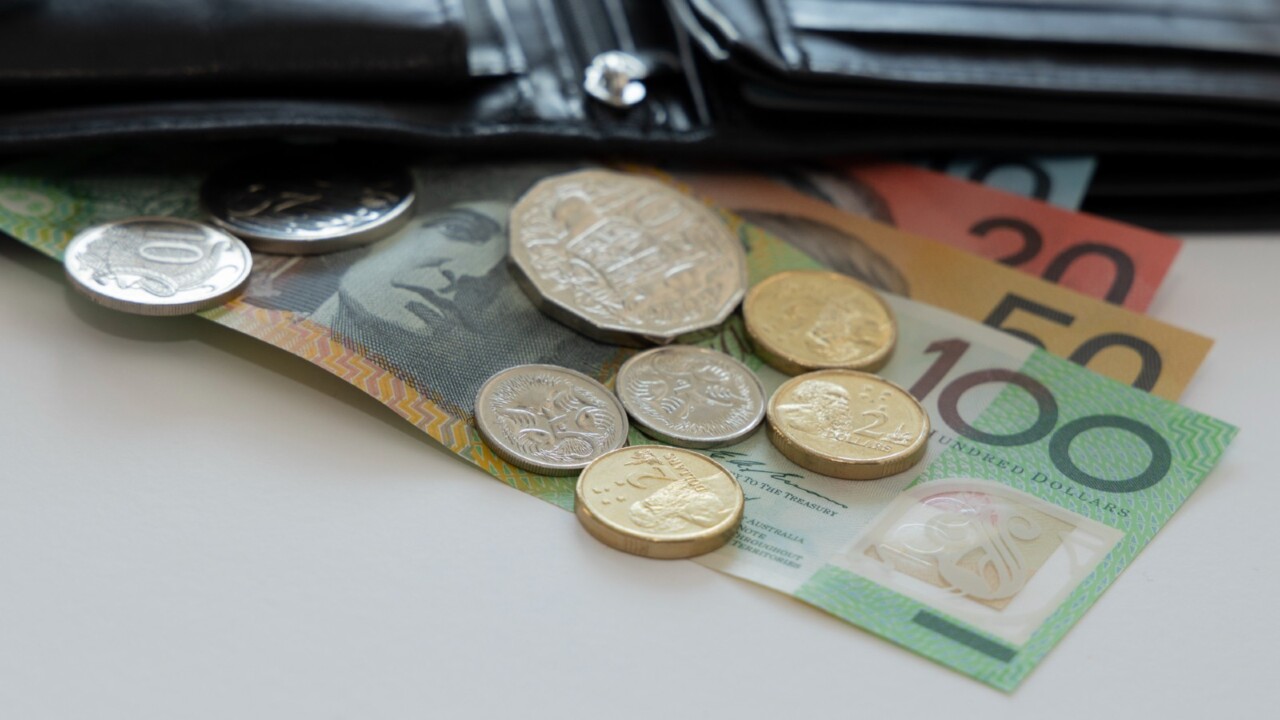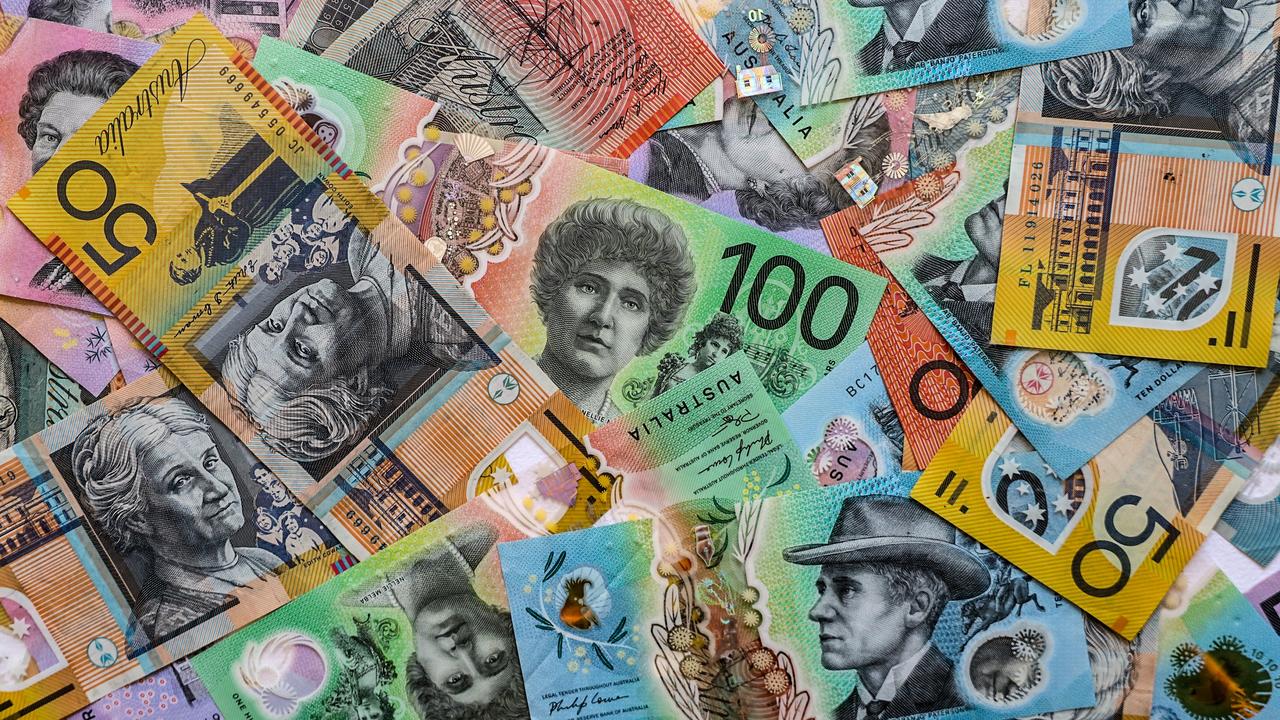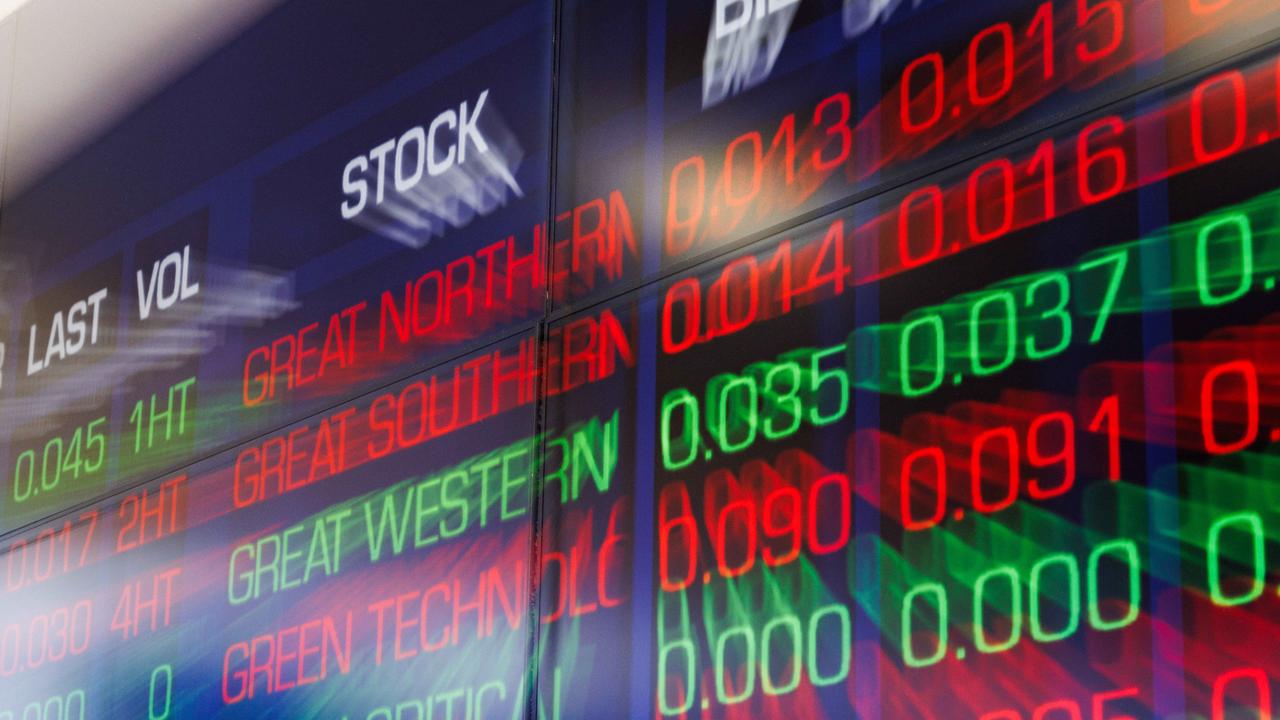Australians hold serious concerns as country leads way to cashless society
Australians hold serious concerns about a cashless society despite making few cash payments.

Economy
Don't miss out on the headlines from Economy. Followed categories will be added to My News.
Few payments may be made in cash these days, but Australians are still expressing serious concerns about heading towards a cashless society.
Seven in 10 say they’ve concerned, while two in five Aussies are extremely concerned about notes and coins becoming relics.
That is according to new research from payments technology company Waave, which found 63 per cent of Aussies are concerned the move would exacerbate economic inequality. It found 58 per cent hold concerns because they are worried they will pay more in banking and card fees, and 42 per cent don’t trust in financial services to operate ethically in a cashless society.
Even “cash nostalgia” plays a role in our reluctance to go completely cashless, with 42 per cent believing they will miss the opportunity to handle the notes and coins in their hands.
While this feeling is highest among Baby Boomers (49 per cent), surprisingly it is still significant among Millennials (37 per cent) and even Gen Z (38 per cent).
“Whether you’re younger or older, the psychology around cash is unique,” Waave CEO Ben Zyl said.
“We like the feel of it, the sense of control, and we tend to spend less when we pay in cash.
“It’s up to governments, banks and retailers to move faster in adopting and promoting the latest technologies to create a cashless system for consumers that is fair, transparent and user-friendly for everyone.”

Those of us who are most concerned are less tech savvy and have poorer access to financial services.
That is 82 per cent of Baby Boomers and 77 per cent of regional Australians, as well as 75 per cent of households earning less than $100,000 a year.
Unlike older Australians, almost half (46 per cent) of Gen Z are not concerned that Australia is moving towards a cashless society, including one fifth (18 per cent) who are not concerned at all.
The online survey, conducted by market research company YouGov, took place in February and included Australians aged 18 years and older.
Australia leads the way to cashless society
Dr Angel Zhong, an associate professor of finance at RMIT, predicts a “functionally” cashless society in Australia by 2030 due to consumer preferences.
“That means cashless payment will become the dominant way of payment,” she told news.com.au. “But it does not mean that cash as a legal tender will lose value or disappear from society.”
She explained in a functionally cashless society, the percentage of cashless payments will be over 90 per cent, making cash payments rare.

Dr Zhong said Australia was leading the way globally.
“We have surpassed the US and Europe in the adoption of digital payments,” she said. “We are also the birthplace of large scale Buy now pay later services, such as Zip and Afterpay.”
The Reserve Bank of Australia says the Covid pandemic accelerated decline in cash use.
Only around 13 per cent of payments were made using cash in 2022, according to the RBA’s consumer payments survey.
Dr Zhong said this was a stark contrast to 70 per cent in 2007.
“The use of digital wallet payments on smartphones and watches has soared from $746 million in 2018 to over $93 billion in 2022,” she added.

Dr Zhong explained that even people who don’t use cash can be concerned about moving towards a cashless society for reasons including privacy concerns, security risks and dependency on technology.
“They may worry about their transaction data being tracked and analysed by corporations or government agencies,” she said.
“Digital payment systems can sometimes be vulnerable to technology outage, hacking or fraud.
“People who don’t use cash might still be concerned about the security of their digital transactions and the safety of their financial information.”
She added: “Even though they don’t use cash, people might still be wary of becoming too dependent on digital technology for everyday transactions.
“Concerns about technological glitches, network outages, or power failures could lead to worries about being unable to make payments in the absence of cash.”
There were 424 bank branches closed in the 2022-23 financial year, including 122 branches in regional and remote areas, according to the Australian Prudential Regulation Authority.
It said those closures meant branch numbers had declined by 34 per cent in regional and remote areas, and 37 per cent overall, since the end of June 2017.
There was also an 11 per cent reduction in the number of ATMs, with more than 700 cash machines removed.
Since 2017, Australia has seen a staggering 60 per cent decrease in operational ATMs, leaving fewer than 6000 cash machines across the country.
Originally published as Australians hold serious concerns as country leads way to cashless society





